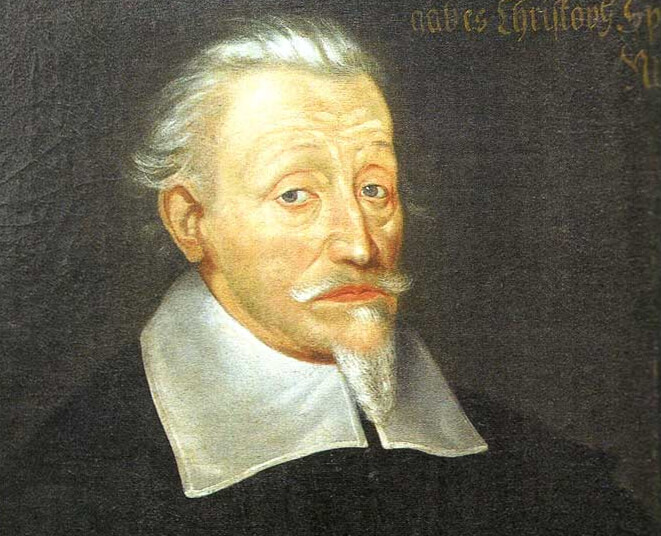350 years ago, on November 6, 1672, the most important German composer (before Johann Sebastian Bach) died in Dresden, eastern Germany: Heinrich Schütz.
Through the example of his compositions and through his teaching he played a major part in establishing the traditions of high craftsmanship and intellectual depth that marked the best of his nation’s musical thought for more than 250 years after his death.[1]
The father of German music, and not only Protestant music, was born 87 years earlier, on October 8, 1585, at Köstritz, in central-eastern Germany. After his first formation in his native land, between 1609 and 1612 he studied in Venice with Giovanni Gabrieli († 1612).
Having become almost a citizen of Venice where he was called Sagittarius, he left written the following words, which show, in a seventeenth-century manner rather than not, what and how much was the artistic value of G. Gabrieli: ‘I spent the first years of my musical training with the great Giovanni Gabrieli. What a man was Gabrieli, O immortal gods! If antiquity, so rich in expressions, had known him she would have preferred him to Amphion; if the muses had wished to marry, Melpomene would have had no other spouse than he, so great was his mastery of song!’[2]
Thanks to the Venetian experience, Schütz’s compositions will be pervaded with Italian taste. He devoted himself to the Passions, musical settings of the suffering and death of Jesus which, from the 17th century onwards, developed in Germany in response to the oratorio. From 1617 until his death Schütz was Kapellmeister (i.e. head of musical services, both religious and civil) at the Dresden court. He was a rigorous composer, who nevertheless did not disdain eclectic experimentation (bringing together Lutheran practice, extreme Flemish polyphony and Italian lesson), always done with elegance and depth. His vast production includes both sung and instrumental sacred music; The Seven Last Words from the Cross, the three books of Simphoniæ Sacræ, many Psalms and Spiritual Concerts deserve prominence.
Very singular is the score entitled Musicalische Exequien… mit 6, 8 und mehr Stimmen zu gebrauchen, Funeral music for six, eight or more mixed voices accompanied with basso continuo (form of improvised accompaniment typical of the 17th and 18th centuries).
It is the first German Requiem and was written by Sagittarius in 1636 for the funeral of his noble friend, Count Hans Heinrich von Reuss. When the count died, his relatives asked Schütz to set to music the 13 biblical verses and the 8 hymns inscribed around the coffin that the count had build. It was not easy for the composer to combine elements so different in style and content; nonetheless a complex score was born, divided into three parts, to be performed during three different moments of the funeral service.
In the first part, the largest, written in the form of a great spiritual concert, for solos and choir, we also find the Kyrie, typical of the short Lutheran Mass. The second and third parts are simpler, which include a beautiful motet for double choir, with alternating solo voices, on two verses (25-26) of Psalm 73 and the Canticle of Simeon (Lk 2:29-32), for 5-part choir, to which are added a few verses taken from the books of Revelation and Wisdom: “Whom else have I in the heavens? / None beside you delights me on earth. / Though my flesh and my heart fail, / God is the rock of my heart, my portion forever”. “Now, Master, you may let your servant go / in peace, according to your word, / for my eyes have seen your salvation, / which you prepared in sight of all the peoples, / a light for revelation to the Gentiles, / and glory for your people Israel.”
May this composition, undoubtedly one of the most touching of the seventeenth century, or perhaps of all time, in mourning the loss of loved ones, strengthen the spiritual climate of the month of November, which Christian piety dedicates to the faithful departed.
[1] J. Rifkin, Heinrich Schütz in The New Grove Dictionary of Music and Musicians, vol. 17, London 1980, p. 6.
[2] G. Roberti, La musica italiana a Lipsia, Florence 1877, p. 36, our translation.


